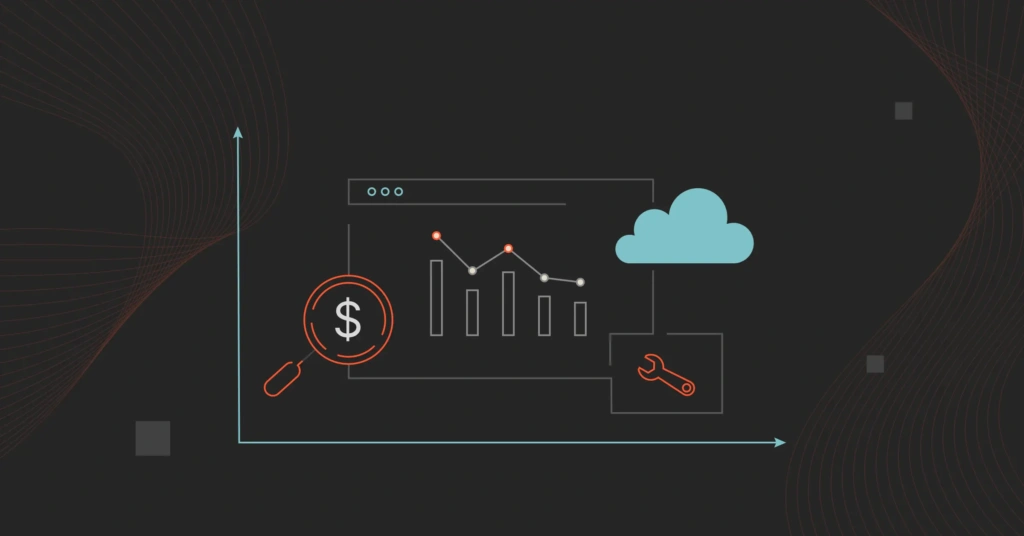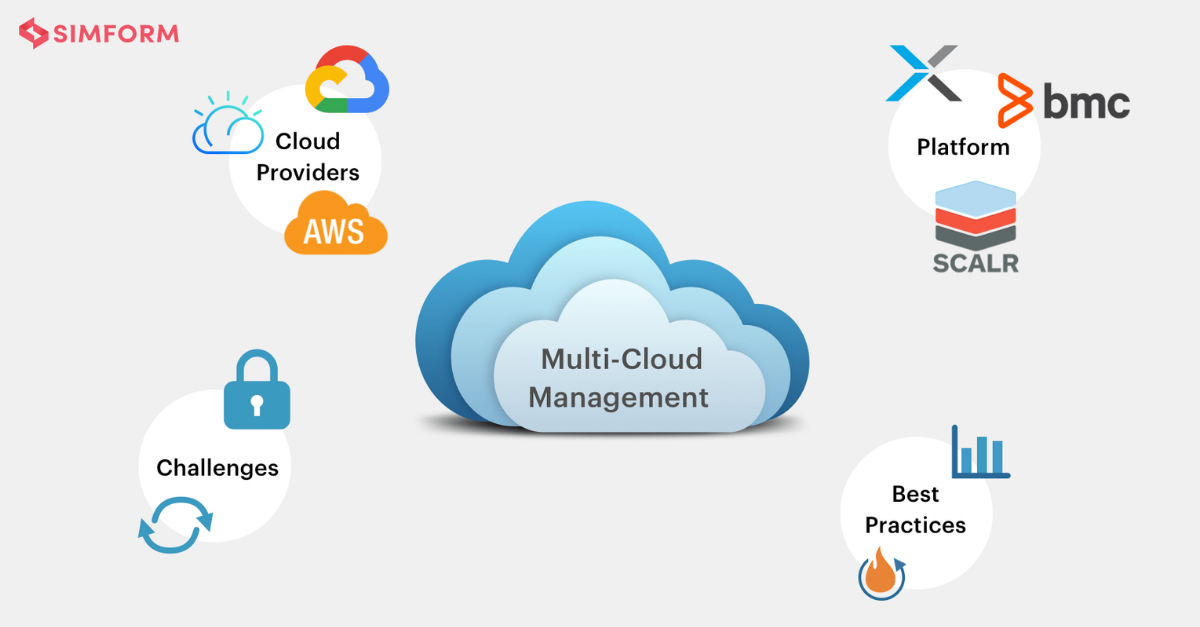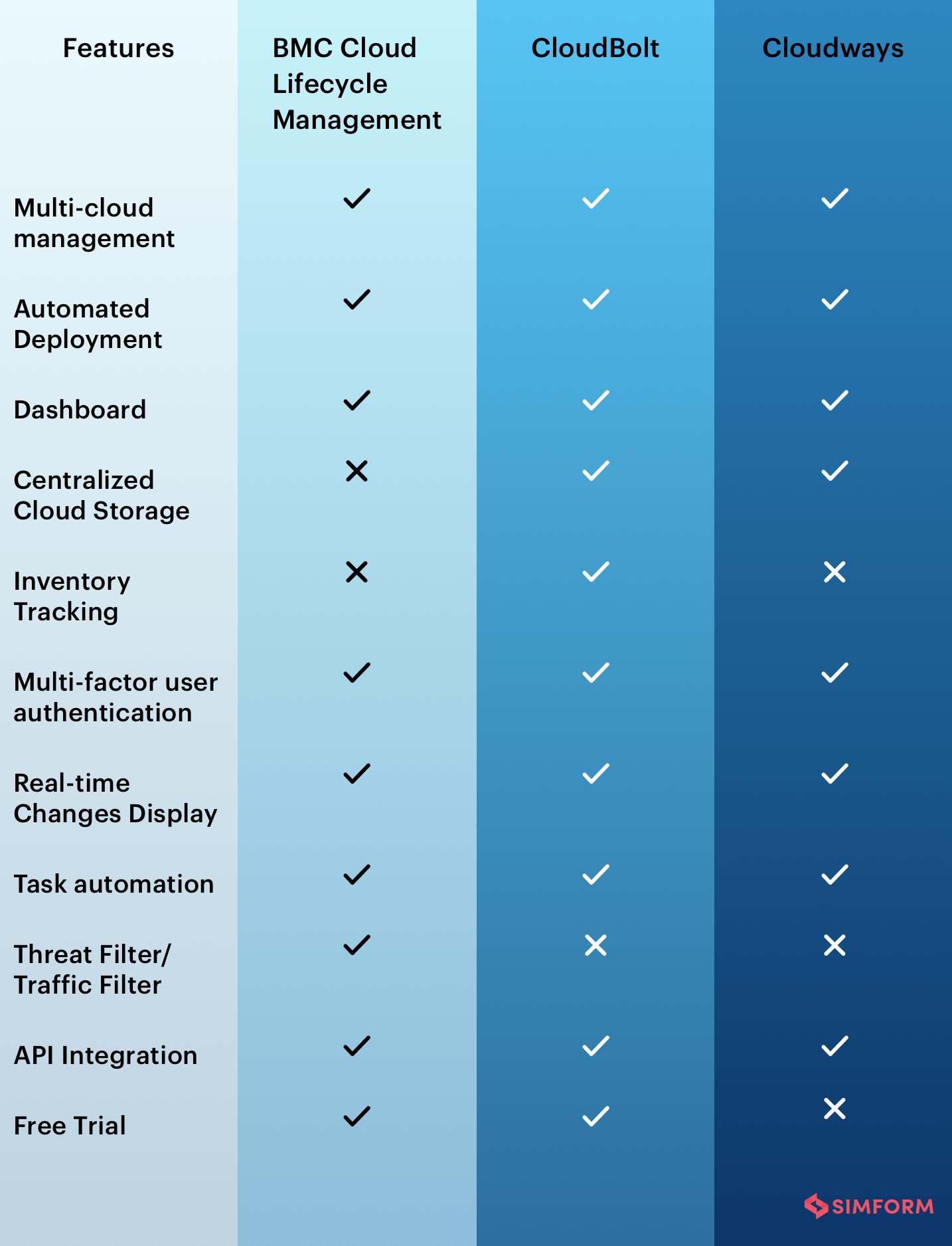Imagine you’re at the helm, steering your business through the digital seas. You’ve anchored into the world of multicloud, a bustling harbor where different cloud services converge.
It’s exciting, but managing multiple clouds can feel overwhelming. You might be asking yourself, “Which tools can help me navigate this complex landscape with ease? ” This is where multicloud management tools come into play. These tools are your compass, guiding you through the intricacies of cloud management.
They promise to streamline operations, optimize costs, and enhance security. But with so many options available, how do you choose the right tool for your needs? We’ll delve into a detailed review of some of the most popular multicloud management tools. We’ll explore their features, benefits, and potential drawbacks, ensuring you have all the information you need to make an informed decision. Whether you’re a seasoned cloud user or just starting your multicloud journey, this guide is crafted to empower you with insights and clarity. Stay with us as we uncover the secrets to mastering multicloud management.
Multicloud Strategy Essentials
A multicloud approach offers great flexibility. It lets businesses use different cloud services. Each service is chosen for its special strengths. This means one cloud might handle storage. Another might be best for computing. Using multiple clouds can help avoid vendor lock-in. It allows switching services when needed. This keeps choices open and costs under control.
Multicloud setups offer improved reliability. If one cloud fails, another can pick up the slack. This boosts overall service uptime. Multicloud environments also enhance scalability. Businesses can quickly expand services when needed. Security is another benefit. Different clouds can handle different security needs. This allows for tailored protection. Businesses can choose the best security options for each task.
Challenges In Multicloud Management
Managing multiple clouds is like solving a big puzzle. Each cloud has its own rules. This makes integration very hard. Teams need to know many different systems. They must also learn new tools. Complexity grows with each added cloud. This can slow down work and cause mistakes. Keeping everything in sync is a big task.
Security is a big worry in multicloud setups. More clouds mean more security checks. Each cloud has unique security policies. This makes it hard to keep data safe. Hackers can find weak spots easily. Protecting data across different clouds is tough. Teams need to stay alert always.
Managing costs in multiclouds is tricky. Different clouds have different pricing models. Keeping track of all expenses is hard. Costs can pile up quickly without proper monitoring. Teams need to balance costs across clouds. Unused resources can waste money. Effective cost management is key to savings.
Key Features Of Multicloud Management Tools
A unified dashboardbrings all cloud services together. Users see everything in one place. This makes things easier to manage. No more switching between platforms. One screen shows all the cloud resources. This saves time and reduces confusion.
Automation helps do tasks without human help. It saves time and cuts errors. With automation, routine tasks become simple. Tools set up workflows to handle jobs. This means less manual work. Cloud management becomes smoother and faster.
Cross-platform compatibility lets tools work with different clouds. It supports AWS, Azure, and Google Cloud. Users can manage all clouds together. No need to use separate tools. This feature makes cloud management simpler and more effective.

Top Multicloud Management Solutions
Tool A helps manage many cloud services easily. It gives a clear view of all your cloud platforms. The tool improves security by checking cloud activities. It also saves money by finding unused resources. With Tool A, you can automate tasks, which makes work faster. It also has alerts to inform you about important changes. This tool works well for small and big companies.
Tool B has many pros. It is easy to set up and use. The tool supports many cloud providers. It also offers good customer support. But there are some cons. Tool B can be a bit expensive for small teams. Sometimes, it may not have all the features you need. Updates can take time to install.
Users find Tool C intuitive and easy to navigate. Its interface is simple and clean. This helps users find what they need quickly. The tool loads fast, which saves time. Users also like the support team, which is helpful and friendly. Some users wish for more tutorials to learn all features. Overall, the experience with Tool C is positive.
Comparative Analysis
Many tools have different speed and efficiency. Some manage tasks very fast. Others take more time. Response time and uptime matter a lot. Users prefer tools with high uptime. Data handling is also crucial. Some tools handle large data better. Smaller tools may struggle. Reliability is key for smooth operations.
Pricing varies among tools. Some offer monthly plans. Others have annual subscriptions. Free trials attract users. Pay-as-you-go models suit small businesses. Flat rate plans are predictable. Discounts are sometimes available. Pricing should match budget and needs. Evaluate features against cost.
Good support helps solve issues. 24/7 assistance is best. Email support is common. Phone support offers direct help. Live chat is quick. Forums provide shared solutions. Knowledge bases are helpful for self-service. Guides and tutorials explain features. Support quality affects user satisfaction.

Future Trends In Multicloud Management
AI and machine learning are making cloud management easier. They help in predicting workloads. This reduces downtime. These tools suggest the best resource allocation. They learn from past data. This makes them smarter. Automatic adjustments are made. This saves time and effort. AI keeps getting better. It adapts quickly. Future cloud tools will use AI more.
Security is a top concern for cloud users. Encryption keeps data safe. Authentication ensures only the right people access data. Firewalls protect against threats. Regular updates fix security holes. Tools will have stronger security soon. Security will continue improving. More checks and balances will be added. Trust in cloud security will grow.
Cloud tools must handle growth well. Scalability is important. Clouds grow fast. Tools manage this growth. Resources are added as needed. They keep things running smoothly. Flexible solutions are key. They help in expansion. Cost efficiency is maintained. As needs grow, tools adjust. Future tools will scale even better.
Frequently Asked Questions
What Are Multicloud Management Tools?
Multicloud management tools help manage and optimize resources across multiple cloud platforms. They offer centralized control, performance monitoring, and cost management. By using these tools, businesses can streamline operations, enhance security, and ensure compliance across diverse cloud environments.
Why Use Multicloud Management Tools?
Using multicloud management tools ensures seamless integration and control across different cloud services. They help in reducing complexity, improving security, and optimizing costs. These tools offer centralized monitoring and management, making it easier to handle multiple cloud platforms efficiently.
How Do Multicloud Tools Enhance Security?
Multicloud tools enhance security by providing unified security protocols across different clouds. They offer robust access control, data encryption, and compliance management. With centralized security monitoring, businesses can identify vulnerabilities and respond quickly to threats.
Can Multicloud Tools Reduce Operational Costs?
Yes, multicloud tools can reduce operational costs by optimizing resource usage across cloud platforms. They provide insights into spending patterns, helping businesses allocate resources more efficiently. By automating processes, these tools can also reduce manual interventions, saving time and money.
Conclusion
Choosing the right multicloud management tool is crucial. It helps streamline operations. Each tool offers unique features. Consider your specific needs before selecting. Evaluate cost, ease of use, and support. Look for scalability and integration options. A good tool simplifies cloud management.
It ensures efficient resource use. The right choice enhances productivity. Always keep security in mind. Multicloud management should protect your data. Make informed decisions for long-term success. Understanding these tools can boost your cloud strategy. Choose wisely to meet business goals.
Read More:
- Network Automation Tools ROI: Boosting Efficiency & Savings
- Noise‑Cancelling Earbuds Battery Life: Maximize Your Usage
- Ci/Cd Pipeline Tools Comparison: Boost Your DevOps Efficiency
- Serverless Vs Containerized Workloads: A Comparative Guide
- Vr Content Creation Tools 2025: Revolutionize Your Creations
- Best Gaming PC Build under $1500: Ultimate Performance
- Best Cross‑Platform Mobile Frameworks 2025: Top Picks
- Javascript Frameworks Benchmark 2025: Speed & Performance

